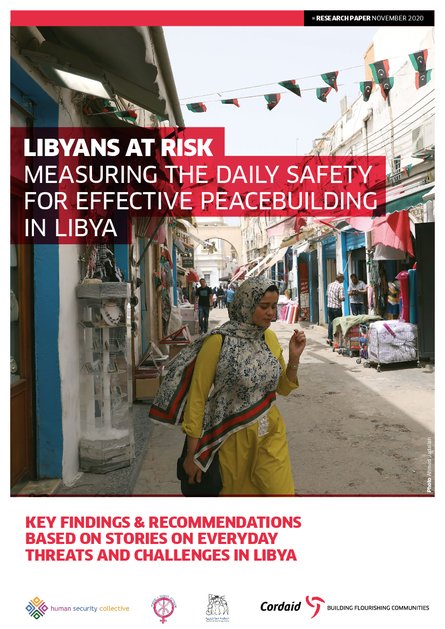
This report follows a human security approach and brings in the lived experiences of Libyans through their own personal stories. The report is not intended as a comprehensive analysis of the geo-political situation in Libya since the 2011-overthrow of Colonel Muammar Gaddafi. Instead, this report will exhibit a unique account of how the conflict developed and what it meant for the people experiencing the conflict: the insecurities, the deterioration of services and infrastructure, the increase of weapons and armed groups, and the decrease in jobs. In addition to a people-centered perspective, this report is also unique as it elevates the voices of marginalized groups. Youth and women take centre stage.
In the chapters we will raise the voices, draw conclusions and formulate recommendations from 124 stories collected between October 2017 and May 2018. These stories were collected by 32 activists, representing eight women and youth-organizations based in the west, east and south of Libya. Women and men in different age categories shared their experiences, providing us an insight into the daily realities of Libyans. The stories highlight experiences of displacement, the constant and real fear that something may happen to you - or worse, to your loved ones, the loss of property, jobs and access to education, and the widespread presence of weapons and small arms that have an incredible impact on the life of civilians in Libya.
While the stories refer to events that took place before 2018, the issues that affect day-to-day safety in the community are still relevant. In fact, the conflict has since intensified with months of military clashes transforming the landscape in and around Tripoli into a military battlefield. As the conflict in Libya evolves, we recommend conducting a further round of story collection to identify patterns and developments on the ground.
